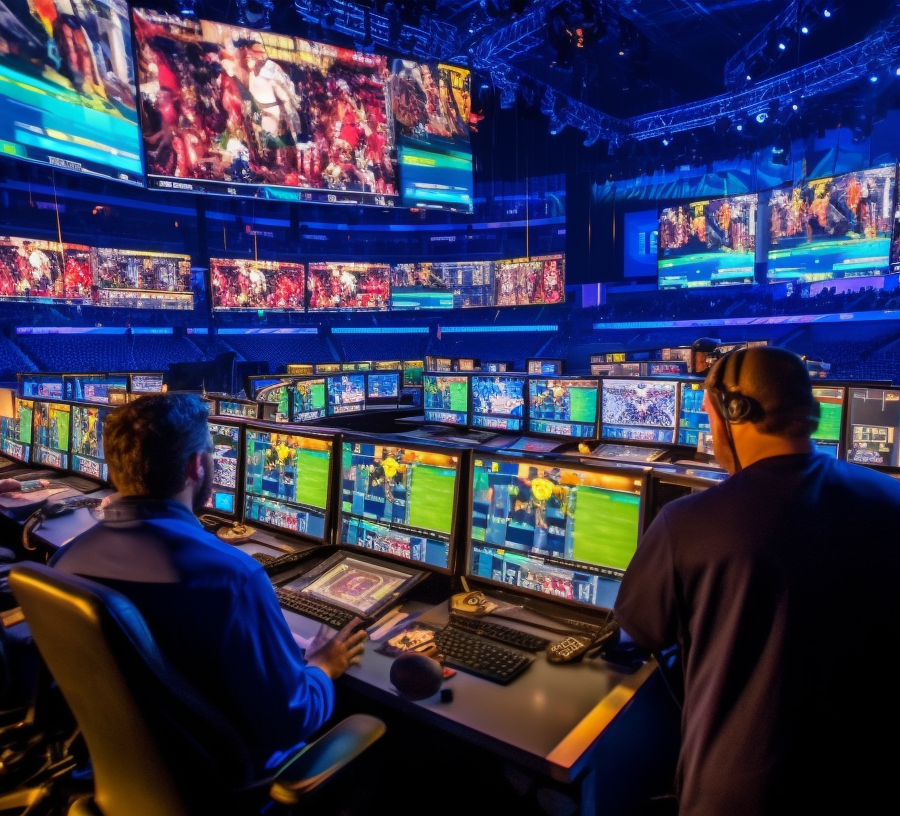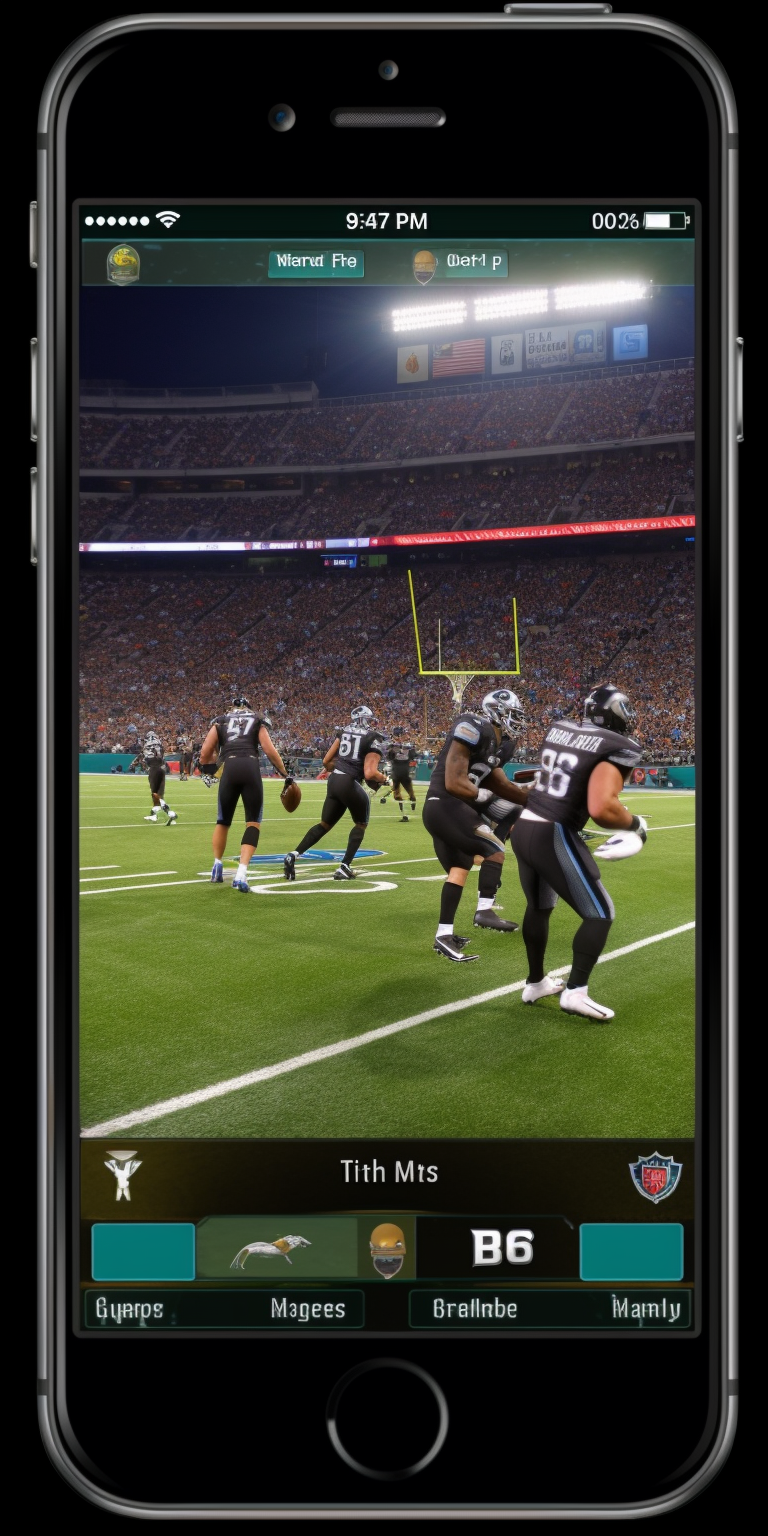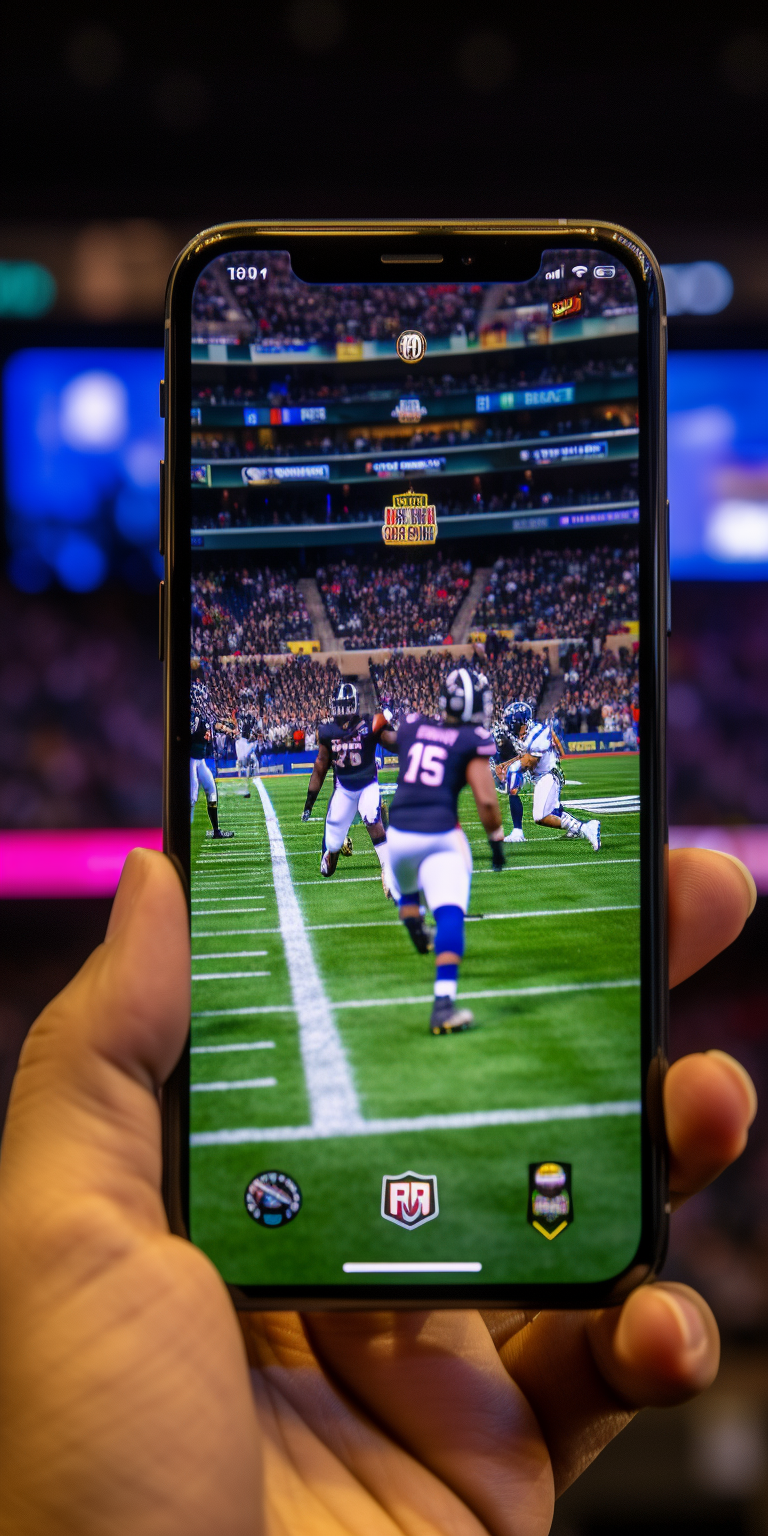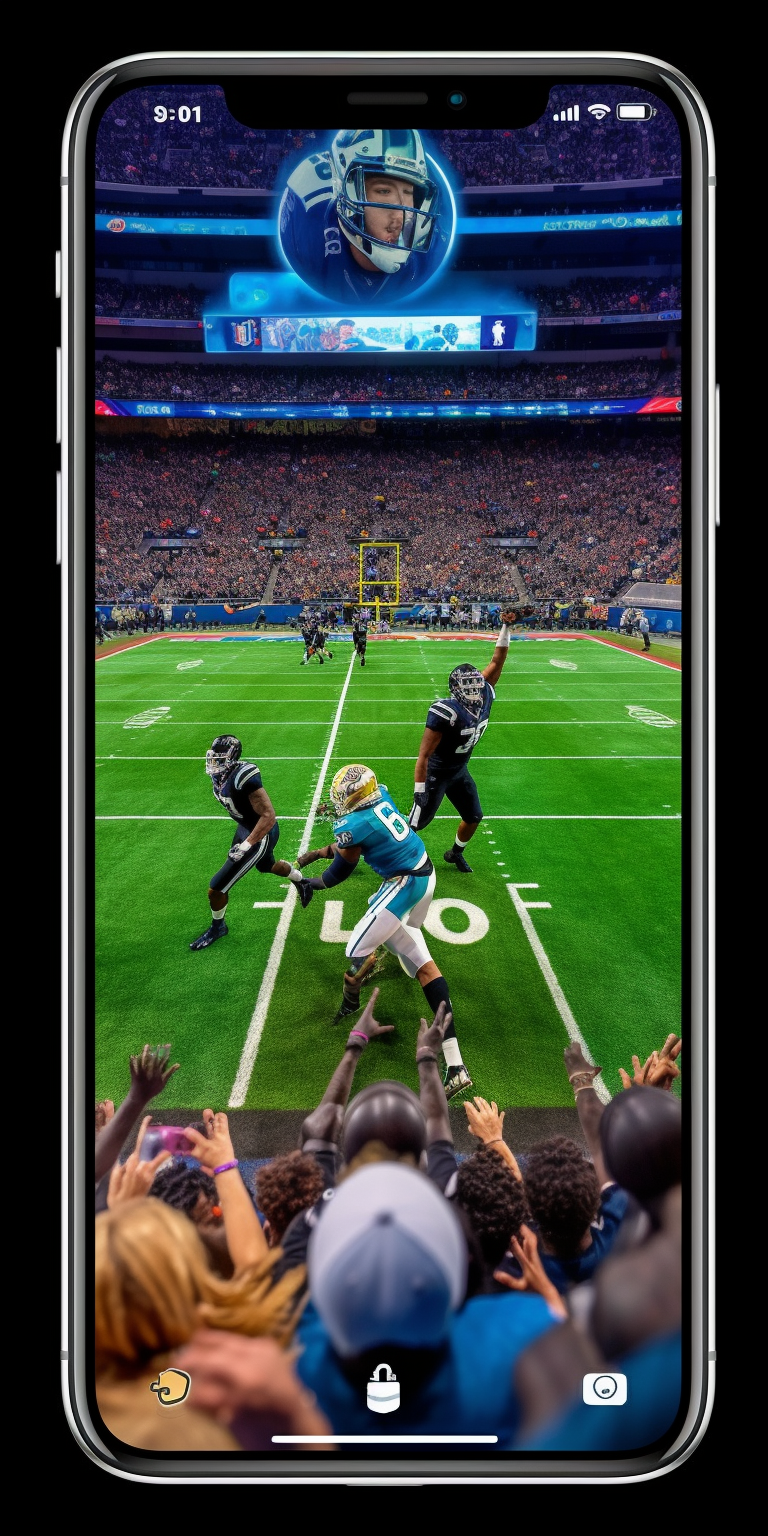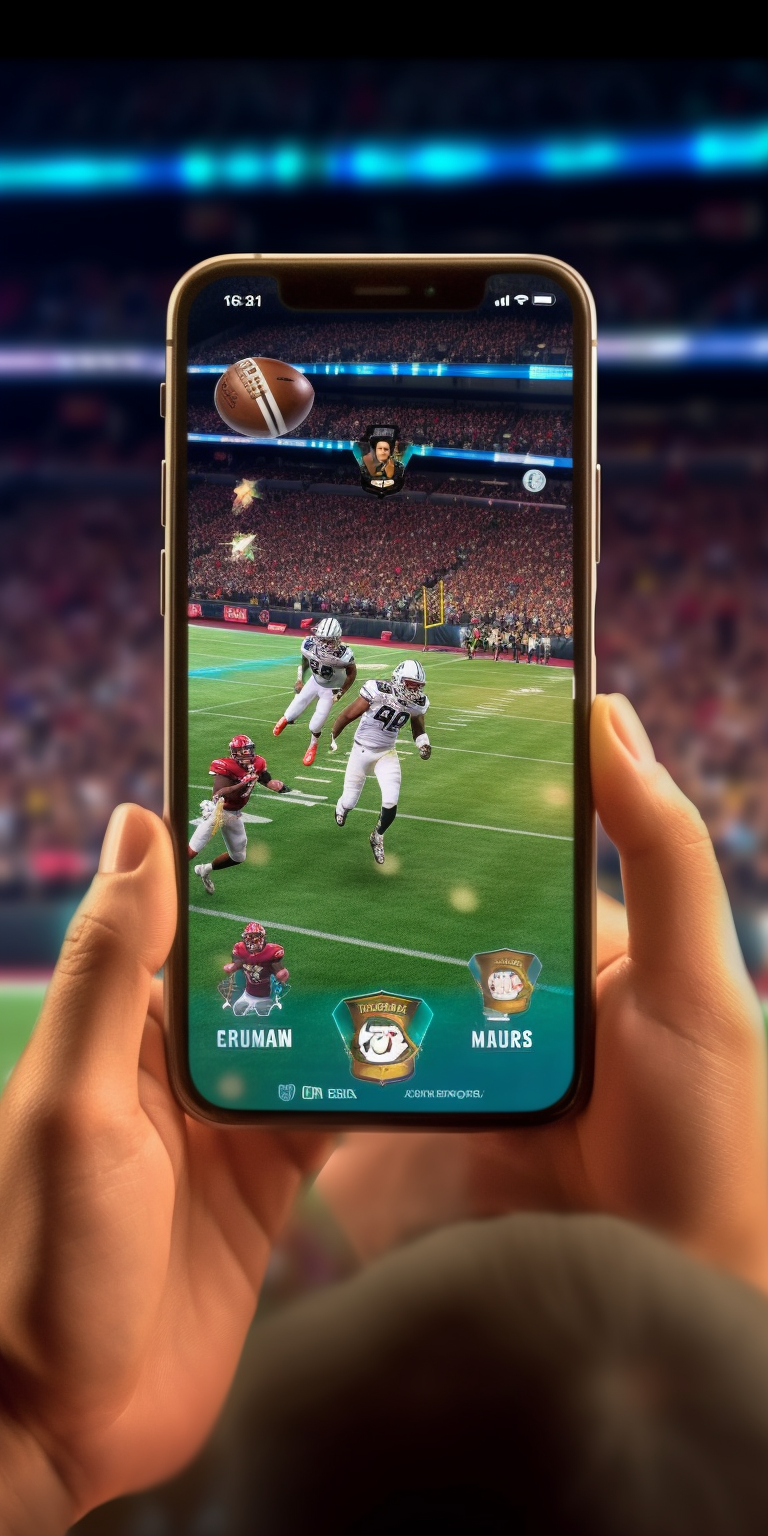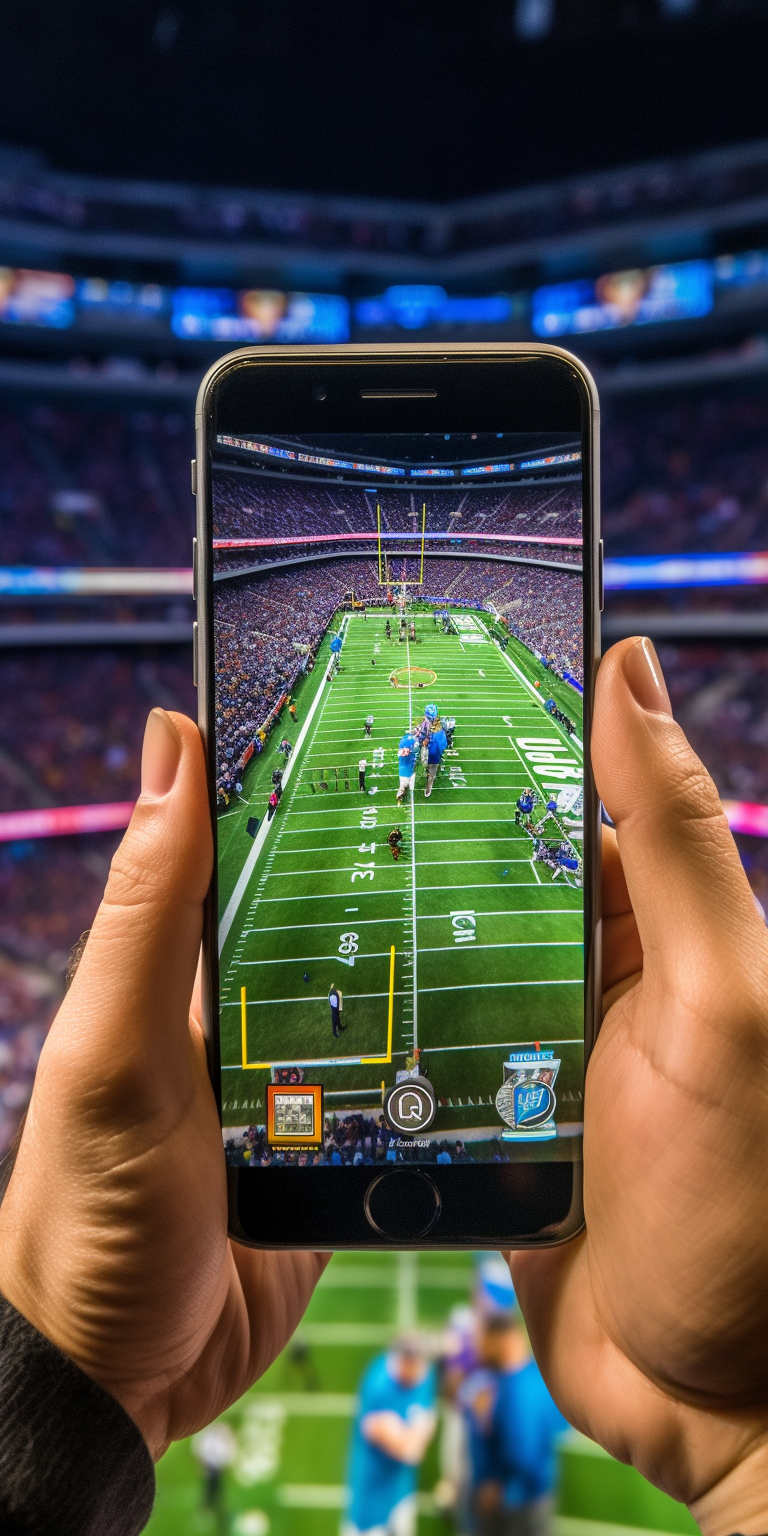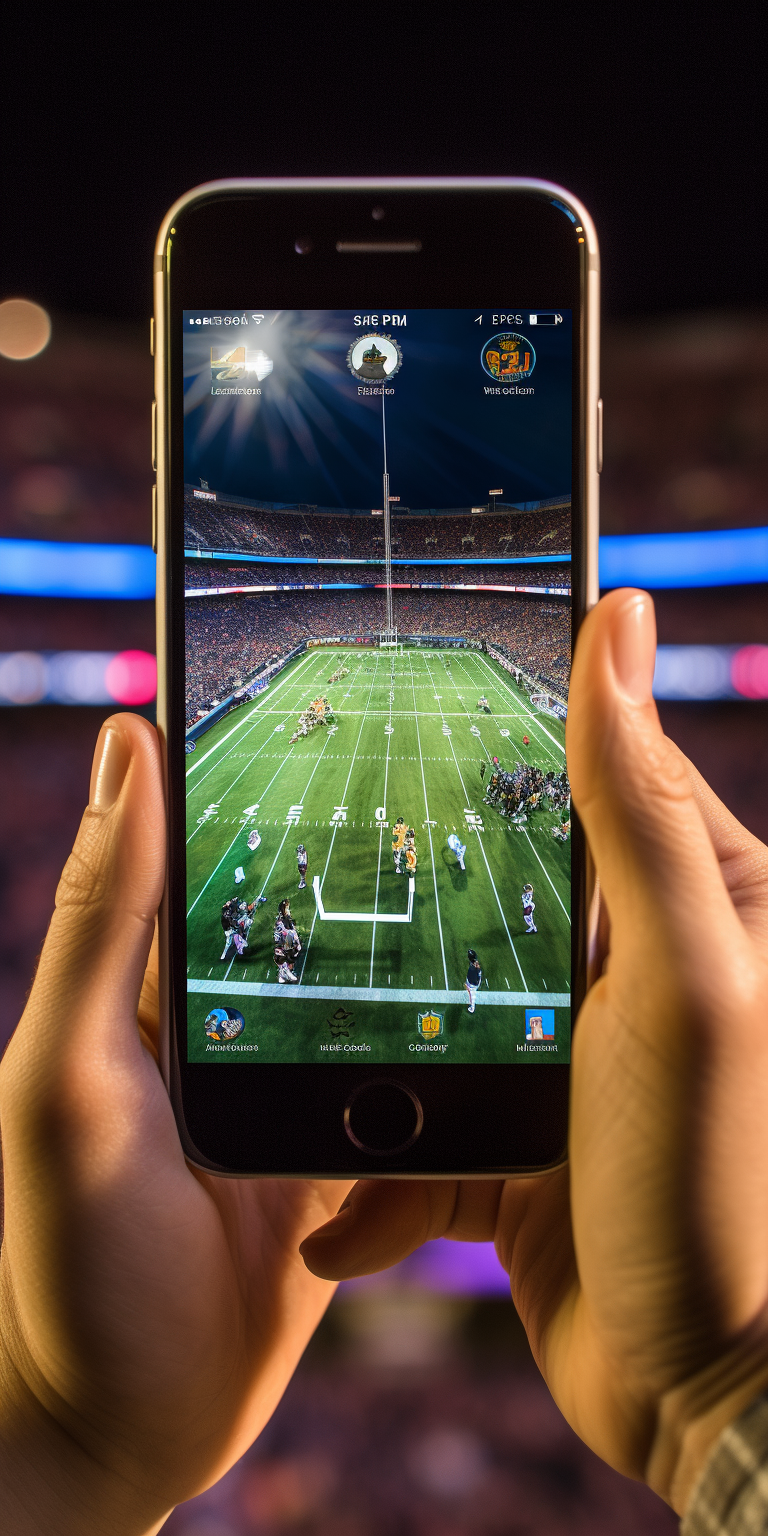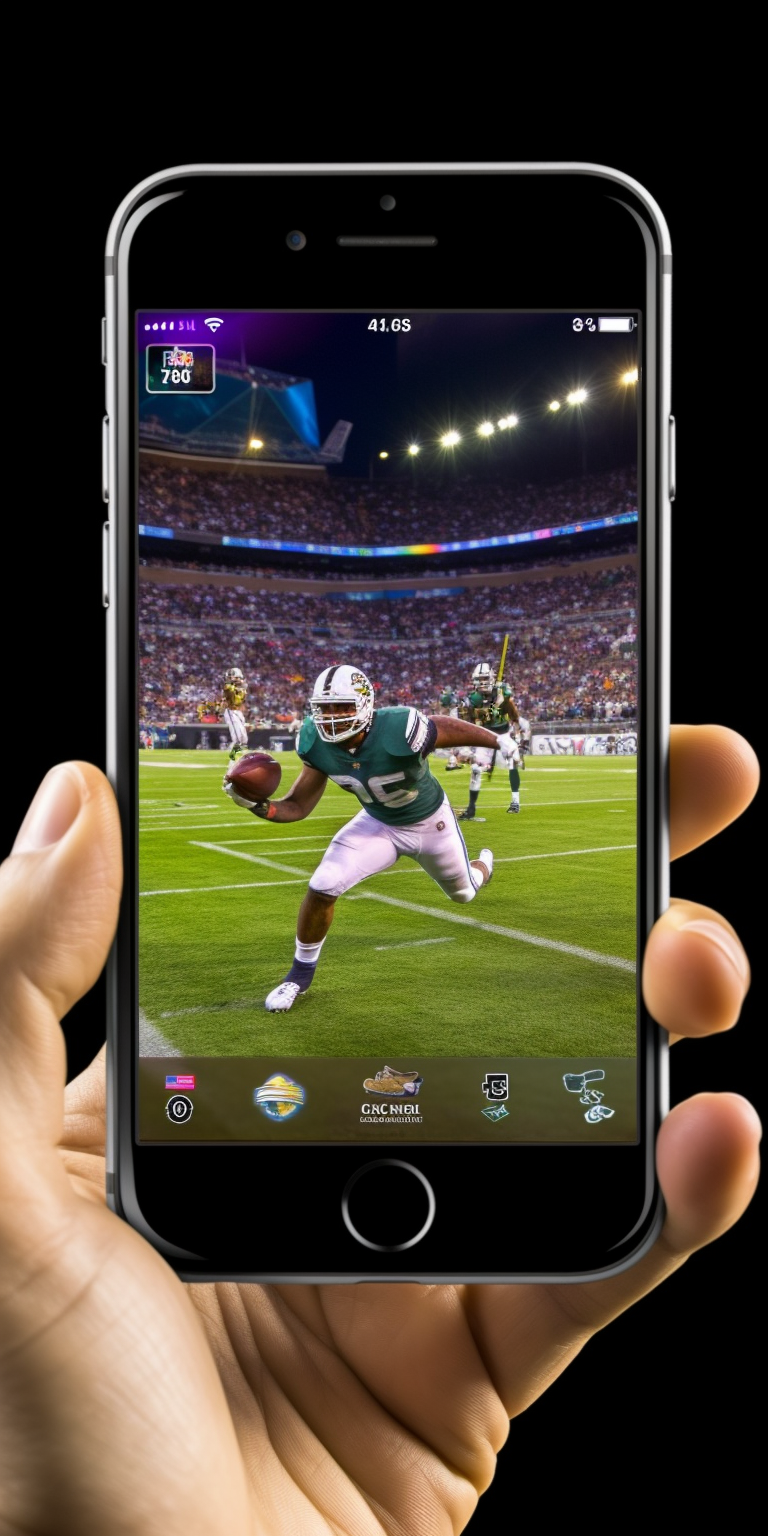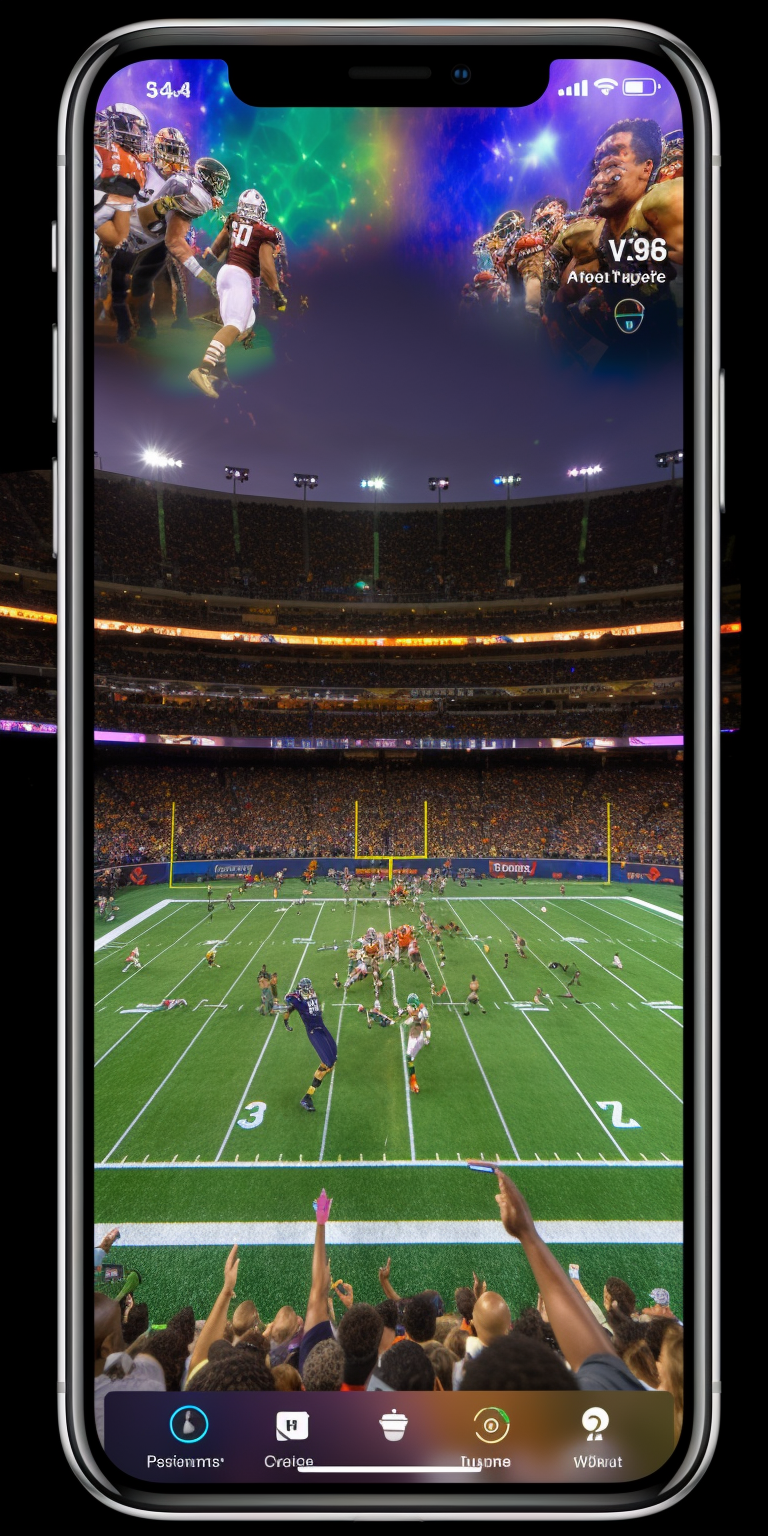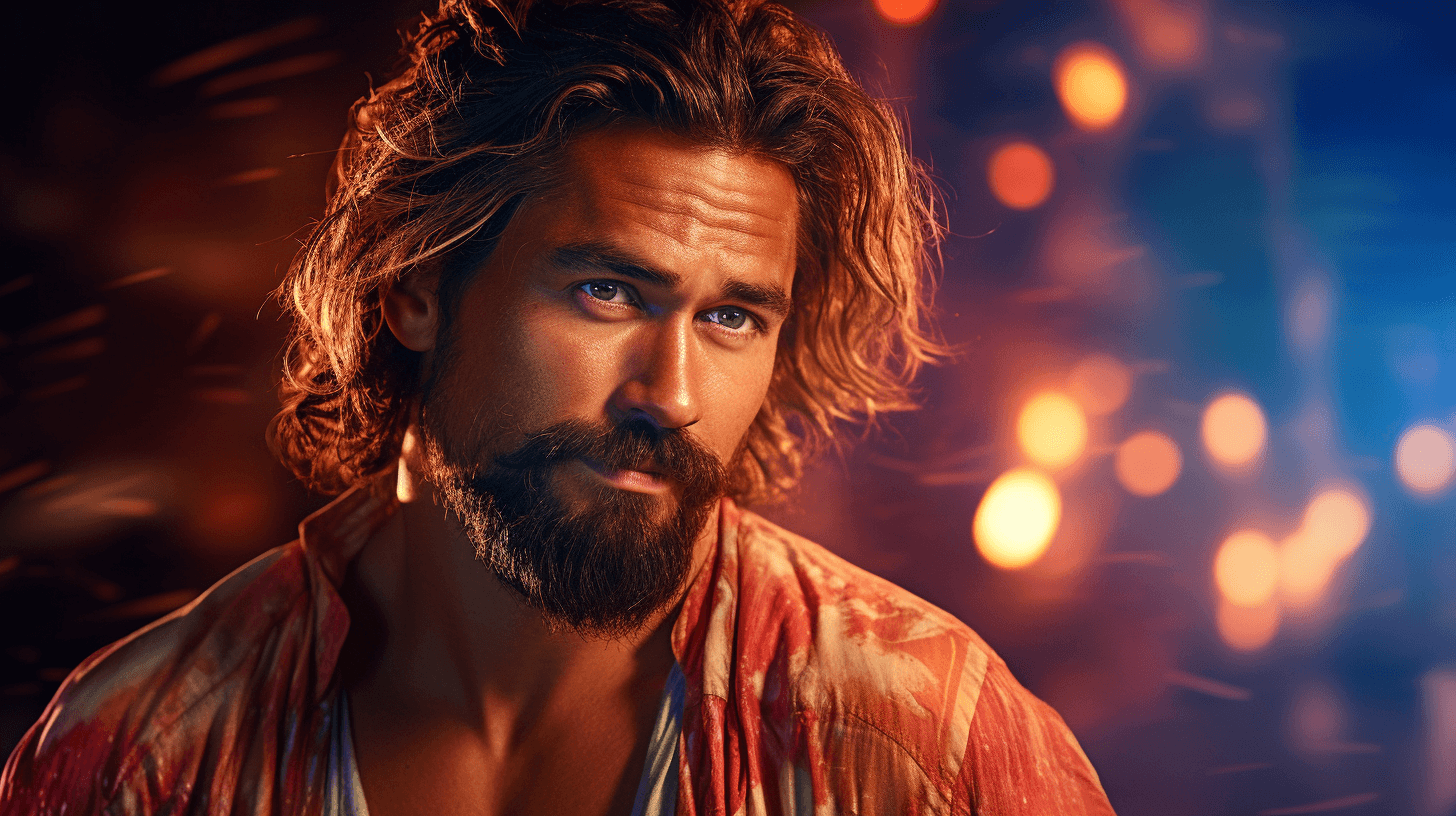NFL’s First Exclusive Playoff Game on Peacock: A Money-Making Success
Da NFL’s Forward Pass: Historic Exclusive Streamed Playoff Game Sets da Stage
Da ony place one reverse happen in da NFL is on da field. Da league rarely moves backward wen it comes to increasing its media rights coffers! If you was fo’ place one wager on wheddah Saturday’s first-evah exclusive, live-streamed NFL playoff game goin’ be repeated in da future, you’d be wise fo’ bet big on da same ting happening during da 2024 postseason.
Hans Schroeder, da NFL’s executive vice president of media distribution, near said as much during one conference call wit reporters three days before da game.
“As it relates to da wild-card game exclusively, we’re excited to continue da conversation,” said Schroeder. “Dis is one deal fo’ dis year, but it’s an NFL playoff game. I ‘spect dey goin’ be plenny interest in it. We’re excited to continue da conversation wit NBC wit what we do dis year and seeing where dose opportunities are fo’ next year.”
No mattah politicians sending out social media posts, no mattah current players wit concerns, and no mattah da totally legit fan complaints fo’ having to pay extra fo’ an NFL playoff game, da league as one entity got one objective — fo’ continue as one ATM fo’ its owners. It was one money grab fo’ da present and da future, and in plenny ways, da viewership fo’ da game is irrelevant to whether da NFL continues to sell playoff games to streamers.
Peacock paid $110 million to air da Kansas City Chiefs’ 26-7 win ova da Miami Dolphins on Saturday night in da AFC wild-card round, an attempt to add to its current tally of 30 million subscribers. Da strategy fo’ Peacock, as it is fo’ oddah streamers dat air sports, is fo’ use da exclusivity of one major live sporting event to drive mass audience aggregation. It is one strategy dat has historically worked fo’ linear entities, and Peacock stay sticking wit its strategy despite $2.8 billion in losses in 2023. (Peacock’s hope is $2.8 billion represents peak losses.) But da game turned out to be one massive viewership success. Viewership across Peacock, NBC stations in Miami and Kansas City and on mobile wit NFL, according to Nielsen custom fast national data, was 23 million viewers. Dat is da most-streamed NFL game evah in da U.S. based on average audience. Da Dolphins-Chiefs game peaked at an average of 24.6 million viewers in da second quarter, including out-of-home viewership. Da 23 million viewership average tops last year’s least-watched playoff game (Los Angeles Chargers at Jacksonville Jaguars, which averaged 20.61 million viewers on NBC) by one couple of million viewers. (Fo’ broadah context, last year’s six wild-card games across Fox, CBS, NBC and ABC/ESPN/ESPN2 averaged 28.8 million viewers.)
Daniel Cohen, da executive vice president of global media rights consulting at Octagon, told Da Athletic dat subscriber churn and piracy are da two biggest challenges facing subscription video-on-demand growth in da U.S. Dat’s one of da questions dat goin’ be answered in one couple of months: How many people signed up to watch da game, and den how many of dose new subscribers canceled aftah da game? (Da cheapest option to purchase da game was $5.99 fo’ one one-month premium plan.) Peacock was atop da iPhone and iPad charts on Saturday night as far as downloaded apps.
NBC naturally pushed da Peacock offering throughout da fourth quarter of da Houston Texans’ blowout of da Cleveland Browns earlier Saturday, including showing Taylor Swift walking in da bowels of Arrowhead Stadium. Da “Football Night In America” crew also hawked da Peacock game, and dat group provided bonus coverage at da start of da game on NBC wit Ahmed Fareed, Devin McCourty and Chris Simms providing play-by-play on one split screen of da game.
An average of 23 million people watched da Dolphins-Chiefs wild-card game Saturday night, which streamed exclusively on Peacock outside da Miami and Kansas City markets.
Rick Cordella, da president of NBC Sports, said before da game dat da company’s two big goals were to have one great production and deliver one clean experience to da users across America. Dey was no widespread reports of major streaming issues, so dat goes down as one win fo’ Peacock. (Peacock can’t control so-called last-mile issues, which involve local cable and internet companies or personal devices.) How you processed da game probably depends on your thoughts of Mike Tirico and Jason Garrett and wheddah you thought da payment was worth it if you was new to Peacock. Tirico is always one pro. Garrett’s energy was miles bettah than Dungy last year, though dey get plenny bettah NFL analysts. If you was one neutral fan and not rooting fo’ Miami or Kansas City, da game wasn’t very memorable.
Peacock’s first exclusive NFL game, which saw da Buffalo Bills defeat da Chargers on Dec. 23, averaged 7.3 million viewers and peaked at an average of 8.4 million viewers from 10:45-11 p.m. ET during da NFL’s first-evah commercial-free fourth quarter. Da Chiefs-Dolphins playoff game also went commercial-free in da fourth quarter based on sponsorship from AWS, Geico and Hotels.com. As Anthony Crupi of Sportico wisely noted, “Comcast is mo’ invested in da long-term growth of Peacock than da immediate adrenaline spike dat comes wit an extra $18 million to $20 million in commercial cash.”
NBC first started streaming “Sunday Night Football” on da internet in 2008, and dey was da first NFL partner in da U.S. to stream da Super Bowl (in 2012). Peacock would be one natural fit fo’ doing dis again.
“We’ve been on Peacock fo’ several years now, and we’re excited wit da plan NBC came back wit and came to us all da way last spring,” Schroeder said. “We’re excited wit da continued growth dat we’re seeing across our digital distribution, certainly wit ‘Thursday Night Football’ on Amazon, where deir weekly viewership numbers are approaching last year on television wit Fox and NFL Network.”
Schroeder was careful to say dat da NFL remains committed to broadcast television. Dat is true, though Saturday night did feel like one seismic moment, one line crossed.
“Dat still continues to be da broadest possible reach,” Schroeder said. “You can’t reach 190 million people throughout da course of da year without having very broad distribution of your content, and dat’s always been one bedrock fo’ us and I tink one real differentiator fo’ us versus oddah sports. Every one of our games is on broadcast television, at least in deir market, and probably 90 percent of our games (are) on broadcast as deir core platform. Fo’ us, it remains really important. We see da continued evolution in da media landscape, and we want fo’ be where our fans are. We know dey’re increasingly, especially younger fans, on different screens.”
Your potential dislike of dis is understandable, but da NFL does not go backward.
NOW IN ENGLISH
NFL’s First Exclusive Playoff Game on Peacock: A Money-Making Success
The NFL’s Forward Pass: Historic Exclusive Streamed Playoff Game Sets the Stage
The only place one reverse happens in the NFL is on the field. The league rarely moves backward when it comes to increasing its media rights coffers! If you were to place one wager on whether Saturday’s first-ever exclusive, live-streamed NFL playoff game is going to be repeated in the future, you’d be wise to bet big on the same thing happening during the 2024 postseason.
Hans Schroeder, the NFL’s executive vice president of media distribution, nearly said as much during a conference call with reporters three days before the game.
“As it relates to the wild-card game exclusively, we’re excited to continue the conversation,” said Schroeder. “This is one deal for this year, but it’s an NFL playoff game. I expect there’s going to be plenty of interest in it. We’re excited to continue the conversation with NBC with what we do this year and seeing where those opportunities are for next year.”
No matter politicians sending out social media posts, no matter current players with concerns, and no matter the totally legit fan complaints for having to pay extra for an NFL playoff game, the league as one entity got one objective — to continue as one ATM for its owners. It was one money grab for the present and the future, and in plenty of ways, the viewership for the game is irrelevant to whether the NFL continues to sell playoff games to streamers.
Peacock paid $110 million to air the Kansas City Chiefs’ 26-7 win over the Miami Dolphins on Saturday night in the AFC wild-card round, an attempt to add to its current tally of 30 million subscribers. The strategy for Peacock, as it is for other streamers that air sports, is to use the exclusivity of one major live sporting event to drive mass audience aggregation. It is one strategy that has historically worked for linear entities, and Peacock stays sticking with its strategy despite $2.8 billion in losses in 2023. (Peacock’s hope is $2.8 billion represents peak losses.) But the game turned out to be one massive viewership success. Viewership across Peacock, NBC stations in Miami and Kansas City and on mobile with NFL, according to Nielsen custom fast national data, was 23 million viewers. That is the most-streamed NFL game ever in the U.S. based on average audience. The Dolphins-Chiefs game peaked at an average of 24.6 million viewers in the second quarter, including out-of-home viewership. The 23 million viewership average tops last year’s least-watched playoff game (Los Angeles Chargers at Jacksonville Jaguars, which averaged 20.61 million viewers on NBC) by a couple of million viewers. (For broader context, last year’s six wild-card games across Fox, CBS, NBC and ABC/ESPN/ESPN2 averaged 28.8 million viewers.)
Daniel Cohen, the executive vice president of global media rights consulting at Octagon, told The Athletic that subscriber churn and piracy are the two biggest challenges facing subscription video-on-demand growth in the U.S. That’s one of the questions that’s going to be answered in a couple of months: How many people signed up to watch the game, and then how many of those new subscribers canceled after the game? (The cheapest option to purchase the game was $5.99 for a one-month premium plan.) Peacock was atop the iPhone and iPad charts on Saturday night as far as downloaded apps.
NBC naturally pushed the Peacock offering throughout the fourth quarter of the Houston Texans’ blowout of the Cleveland Browns earlier Saturday, including showing Taylor Swift walking in the bowels of Arrowhead Stadium. The “Football Night In America” crew also hawked the Peacock game, and that group provided bonus coverage at the start of the game on NBC with Ahmed Fareed, Devin McCourty and Chris Simms providing play-by-play on a split screen of the game.
An average of 23 million people watched the Dolphins-Chiefs wild-card game Saturday night, which streamed exclusively on Peacock outside the Miami and Kansas City markets.
Rick Cordella, the president of NBC Sports, said before the game that the company’s two big goals were to have one great production and deliver one clean experience to the users across America. There were no widespread reports of major streaming issues, so that goes down as one win for Peacock. (Peacock can’t control so-called last-mile issues, which involve local cable and internet companies or personal devices.) How you processed the game probably depends on your thoughts of Mike Tirico and Jason Garrett and whether you thought the payment was worth it if you were new to Peacock. Tirico is always one pro. Garrett’s energy was miles better than Dungy last year, though they get plenty better NFL analysts. If you were one neutral fan and not rooting for Miami or Kansas City, the game wasn’t very memorable.
Peacock’s first exclusive NFL game, which saw the Buffalo Bills defeat the Chargers on Dec. 23, averaged 7.3 million viewers and peaked at an average of 8.4 million viewers from 10:45-11 p.m. ET during the NFL’s first-ever commercial-free fourth quarter. The Chiefs-Dolphins playoff game also went commercial-free in the fourth quarter based on sponsorship from AWS, Geico and Hotels.com. As Anthony Crupi of Sportico wisely noted, “Comcast is more invested in the long-term growth of Peacock than the immediate adrenaline spike that comes with an extra $18 million to $20 million in commercial cash.”
NBC first started streaming “Sunday Night Football” on the internet in 2008, and they were the first NFL partner in the U.S. to stream the Super Bowl (in 2012). Peacock would be one natural fit for doing this again.
“We’ve been on Peacock for several years now, and we’re excited with the plan NBC came back with and came to us all the way last spring,” Schroeder said. “We’re excited with the continued growth that we’re seeing across our digital distribution, certainly with ‘Thursday Night Football’ on Amazon, where their weekly viewership numbers are approaching last year on television with Fox and NFL Network.”
Schroeder was careful to say that the NFL remains committed to broadcast television. That is true, though Saturday night did feel like one seismic moment, one line crossed.
“That still continues to be the broadest possible reach,” Schroeder said. “You can’t reach 190 million people throughout the course of the year without having very broad distribution of your content, and that’s always been one bedrock for us and I think one real differentiator for us versus other sports. Every one of our games is on broadcast television, at least in their market, and probably 90 percent of our games are on broadcast as their core platform. For us, it remains really important. We see the continued evolution in the media landscape, and we want for be where our fans are. We know they’re increasingly, especially younger fans, on different screens.”
Your potential dislike of this is understandable, but the NFL does not go backward.

